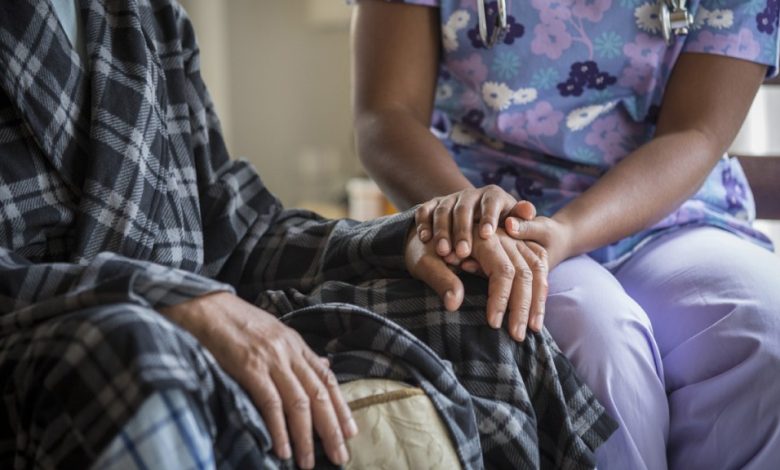Topic: Nursing Homes and African American Residents


Our conversation today is on nursing homes, where African American family members are residents. Healthcare systems like nursing homes are grappling with the issue of adequate and acceptable care.
Would you be surprised to learn that during the height of COVID-19, elderly residents of color received limited care, and limited resources when compared to white residents?
Family members also reported that care was also in question if certain diagnoses were attached. Residents with cognitive impairments, speech impairments, visual impairments, and mobility impairments were recorded by families with an array of problems. You may ask why I am bringing this topic up. Well, I’m glad you asked. Acknowledging the effects of underlying as well as individual prejudice, especially on the health of people of color should encourage families to make a plan. African Americans in nursing homes tend to be in communities that don’t look like them. Further, agency evaluations have lower ratings of staffing, cleanliness, and maintenance.
Most know I strongly encourage the family to care for the family, in the home. The chances of care being delayed or absent increases if all hands are not on deck. Hands-on-deck, meaning family members available to see and assist when needed. Once you put your loved ones in the hands of others, and without vigilance and diligence, care gets lost in translation. The translation of 20 other residents needing care and limited staff to do the caring. Baths are delayed, medication administration is delayed, incontinent care is delayed, and skincare is compromised. All unacceptable because health equity matters. One way to reduce this disparity is to have a family plan as you see your loved ones aging and facing health challenges and life-changing and disabling conditions. The care of minority residents should never be aligned with financial resources, but unfortunately, it is. Choice of accommodations are typically fewer, and many are using Medicaid. Medicaid is a joint federal and state program that helps with medical costs for some people with limited income and resources. Because of this, many nursing homes limit this government funding; again, this highlights the disparity in access to care. Sidebar… Medicaid programs vary from state to state. Which is another reason that it is vital to do your homework!
What is the solution?
Simply, a family plan that can spread the care of your loved one so no one person is overwhelmed or weary in well doing.
As Your Proactive Caregiver Advocate, consider nursing homes as a last resort. Do your homework should this be a necessary option and know that vigilance and diligence are required. Be safe! Be well!
Dr. Cynthia J. Hickman is a retired registered nurse and case manager; CEO of Your Proactive Caregiver Advocate and author of From the Lens of Daughter, Nurse, and Caregiver: A Journey of Duty and Honor, and The Black Book of Important Information for Caregivers. Website: www.cynthiajhickman.com.
The post Topic: Nursing Homes and African American Residents appeared first on Houston Forward Times.




